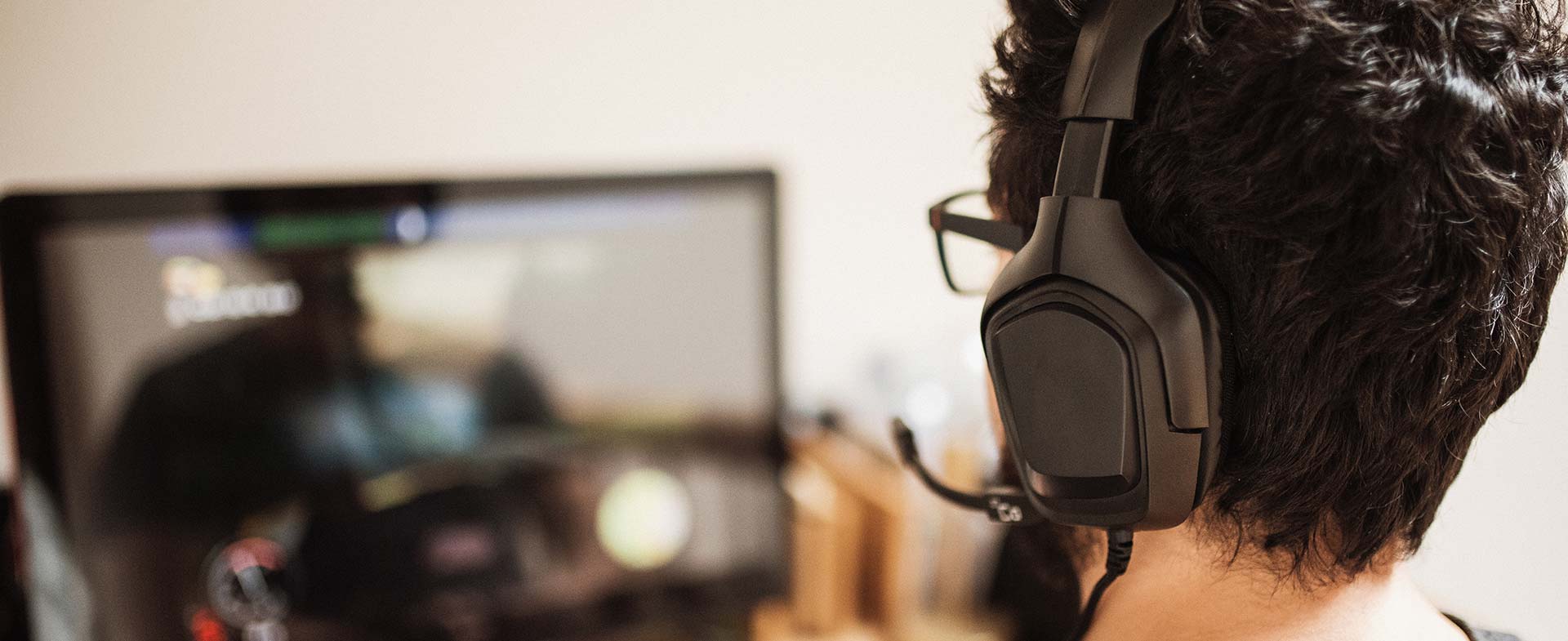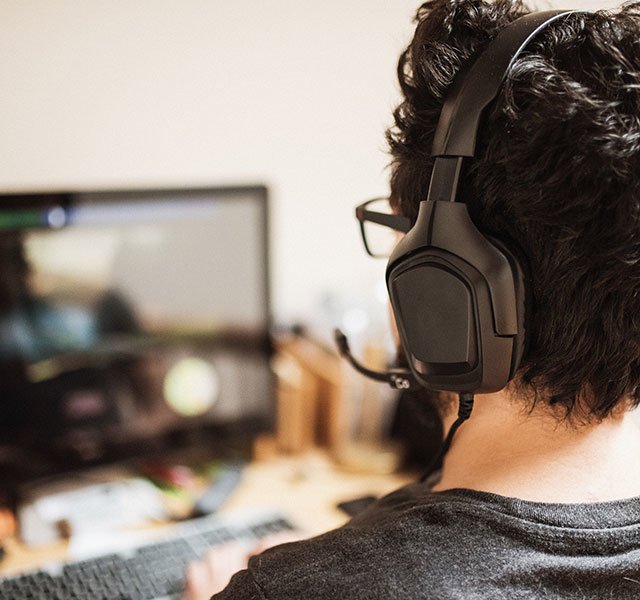Against the backdrop of a worldwide pandemic and government-issued safety guidelines to remain physically distant, many people have taken up electronic gaming. E-sports is a multibillion-dollar industry with professional, collegiate and amateur players across the globe.
"E-sports is essentially competitive video gaming, and it's appropriate for almost any age group," says Nithin Natwa, M.D., a sports medicine specialist at Henry Ford Health. "There are entire electronic leagues — amateur teams and collegiate teams that compete against each other. Even the National Basketball Association did a draft."
An E-sports Explosion
The electronic gaming industry has taken the world by storm. An estimated 380 million people watch e-sports worldwide and more than 125 colleges have started varsity e-sports teams.
Even the International Olympic Committee is getting on board: E-sports will be a demonstration activity at the 2024 Games.
"The number of e-sports viewers has skyrocketed during the pandemic," Dr. Natwa says. Since the pandemic began, Verizon reported a 75% increase in gaming traffic during peak hours compared to 20% and 12% increases in web traffic and digital video streaming, respectively.
The Perks and Pitfalls Of Electronic Sports
E-sports is definitely entertaining. If you play in moderation, it comes with several health perks, too. But as with all forms of entertainment, overplay can result in a host of problems.
The Perks
- Improved hand-eye coordination: "A proficient gamer has 300 to 400 precise actions per minute," Dr. Natwa says. Those actions require gamers to develop superior hand-eye coordination skills.
- Improved attention and visual acuity: Gaming demands constant attention. Players develop an uncanny ability to track objects and they're able to focus on e-sports despite external distractions.
- Improved decision-making and problem-solving skills: E-sports require players to make quick decisions and plan ahead. They not only have to focus on which move to make and when, but they also come up with strategies to defeat their opponents.
- Enhanced socialization: E-sports offer an opportunity for connection. That can be especially important during a global pandemic where people are physically isolated. "A lot of gamers say e-sports helps them connect socially with friends," Dr. Natwa says.
The Pitfalls
- Gaming disorder: In 2018, the International Classification of Diseases includes a condition called "gaming disorder." The term describes a condition where gamers prioritize e-sports over other activities to the degree where it impacts overall health and well-being.
- Joint pain: Proficient gaming demands an outrageous amount of repetitive movement in the thumbs, fingers and hands. "Those repetitive movements cause inflammation and tendonitis," Dr. Natwa says. Common concerns include "gamer's thumb" (inflammation of tendons that move your thumb), carpal tunnel syndrome (a pinched nerve that causes numbness, weakness and tingling in the hands), and even tennis elbow (irritation and inflammation of the tissue that connects the forearm and elbow).
- Nutritional neglect: It's not uncommon for gamers to sit in one spot for hours. They might forget to eat or just grab the most convenient snack they can, so they can devour it quickly and get back to the game.
- Lack of exercise: Many gamers focus on the screen to the detriment of all other activities, including physical exercise. Among competitive gamers, there's even a risk of developing blood clots from sitting in one spot for too long.
- Mood and sleep disturbances: While e-sports participation has not been shown to cause mood or social disorders, there is a correlation between them — and one can exacerbate the other. "Things like depression that are caused by lack of exercise, nutrition, hydration, natural light — all of those things happen with video games," Dr. Natwa says. Sleep disorders, too, may get worse among people who enjoy participating in e-sports.
Striking A Balance With E-sports
If you're a pro-level gamer, it's difficult to avoid some of the pitfalls of e-sports. But according to Dr. Natwa, there are things you can do to minimize the negative hit to your health:
- Schedule frequent breaks — and take them.
- Make time for "real" exercise.
- Be sure to eat a healthful diet and consume meals at regular intervals.
- Wear braces, rest and perform appropriate rehab on injured areas.
- Practice targeted exercises to strengthen surrounding structures and lubricate inflamed joints and tendons.
Most important, know your limits. "If you're not a professional gamer, make sure to restrict the amount of time you're participating in e-sports and diversify your activities," Dr. Natwa says.
E-sports is a real activity that millions participate in, including children. "Just like physical sports, parents need to regulate the passion of the athlete," Dr. Natwa says. "Since e-sports is a new field, parents need to educate themselves so they can make informed decisions for their children."
Concerned about your own e-sports activities? Or those of your child? Schedule an appointment with a sports medicine physician, psychiatrist or neurologist who has a background in e-sports. These professionals can help ensure you get your game on in a way that's both entertaining and healthy.
To find a doctor at Henry Ford, visit henryford.com or call 1-800-HENRYFORD (436-7936).
Dr. Nithin Natwa is a sports medicine doctor who sees patients at Henry Ford Macomb Health Center in Chesterfield and Henry Ford Macomb Orthopedics and Wound Care in Clinton Township.



